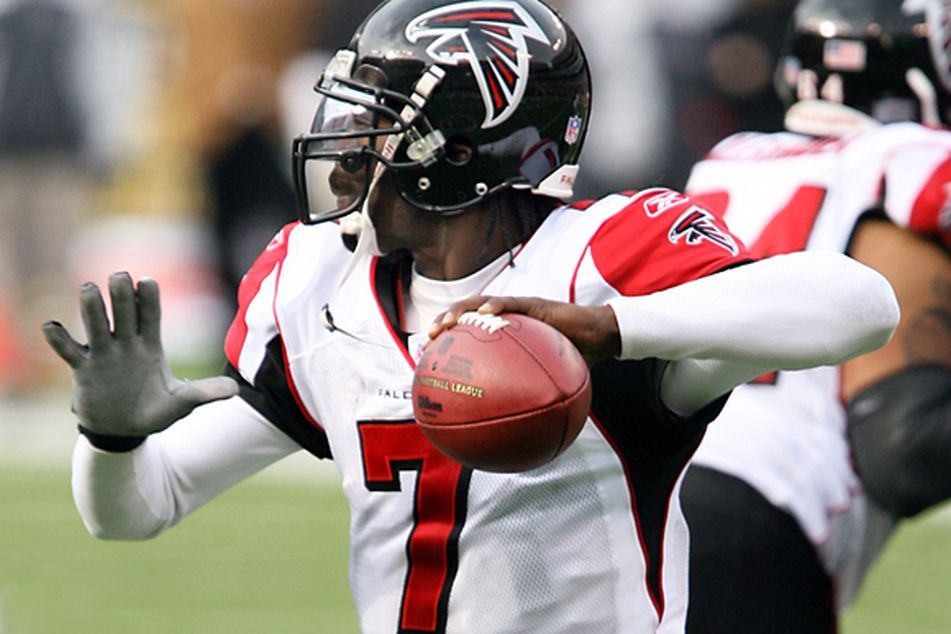Advisers tackle tough clients in NFL players
 Michael Vick (photo: Keith Allison)
Michael Vick (photo: Keith Allison)
There are just 450 advisers 'approved' to work with NFL players, fighting it out over 1,800 athletes in the league. But now, Dana Hammonds, director of financial programs and adviser administration for the NFLPA, said the players' union will craft new rules that advisers must meet to get on that carefully vetted list.
Eight years ago, adviser Aaron Smith visited local gyms at universities around Richmond, Va., in hopes of lining up athletes as clients.
The bench press paid off. A.W. Smith Financial Group Inc. now manages about $73 million in assets, and Mr. Smith said that about 20% of his business comes from National Football League players, former players and NFL coaches. While the professional athletes have been a boon for his firm, Mr. Smith — himself a former college running back — says the athletes require about 70% more time than his other clients.
This is hardly surprising. Many NFL players and professional athletes come from middle-class or low-income backgrounds and often have absolutely no experience handling large sums of money. Such financially unsavvy investors need a lot of coaching. What’s more, they also tend to make for easy targets for Ponzi schemers and flimflam artists.
Indeed, a number of NFL stars have found themselves ensnared in investment scams in recent months. In May, retired NFL star Warren Sapp petitioned a court to recover over $100,000 in a trust account left by the law firm of convicted Ponzi schemer Scott Rothstein. Early in the month, Wayne Read, chief executive of Louisiana Film Studios LLC, pleaded guilty to selling nonexistent film tax credits to nearly two dozen players and coaches of the New Orleans Saints, including star quarterback Drew Brees. And in January, Michael Vick sued a Mary Wong, an Omaha, Neb.-based financial adviser, for $2 million for allegedly using his money for her personal and business expenses. Ms. Wong denies the charges.
The National Football League Players Association has put together a list of approved financial advisers to help protect NFL players from fraud. Advisers pay $1,500 to be put on this list, which is available to all players, and $500 annually to remain on the list.
To get on the roster, a financial adviser must pass a background investigation and must have appropriate financial qualifications, such as a certified financial planner mark or registration with the Financial Industry Regulatory Authority Inc.
Currently, there are 450 advisers on the union’s approved list, fighting it out over 1,800 or so NFL players. Dana Hammonds, director of financial programs and adviser administration for the NFLPA, said the union is in the process of crafting new qualifications which advisers must meet to get on the list.
Ms. Hammonds didn’t reveal details about the changes that will be made. She did say she is hopeful that with the ramped-up guidelines, only advisers who are serious about working with NFL players will make the grade.
“I guarantee the majority of advisers who work with high-net-worth clients would find it a foreign world to work with professional athletes,” she said. “The same rules don’t apply.”
Apparently not. The time commitment alone can be an eye-opener, advisers said. Tom Vilord, president of Vilord Wealth Advisors LLC, which has $45 million in assets, started landing NFL clients a year ago. He hopes to expand that part of his business by getting his firm onto the approved list — even though he grants that football-playing clients take up a sizable chunk of his time.
“They think that they are your only client. They call every day,” Mr. Vilord said. “But I like working with them. They’re a lot of fun.”
Mr. Smith, who charges a retainer of $25,000 to $200,000 for clients who are professional athletes, said it’s not unusual for him to get calls from athletes at midnight, often about basic financial concepts: taxes, car leases, even questions about child support payments.
“It’s constant re-educating,” Mr. Smith said. “I have to re-educate them multiple times on the same issue. It just takes a lot more time.”
What’s more, advisers must keep an eye on a player’s spending. Although the median NFL salary is currently around $770,000, taxes, agent fees and personal-management charges can knock that amount down by nearly half.
And while making it to the pros is a dream come true for almost all the players, it’s a short-lived dream. The average NFL player career spans just three and a half years.
The harsh reality is, the days of the big paychecks and the per diems don’t last forever.
But getting these world-class athletes to think about life after football can be a tough sell. Adviser Alan Holford, an asset agency manager with Axa Advisors LLC, who manages about $250 million in assets, counts a dozen current or former professional athletes among his 1,000 or so clients
Few seem concerned with mutual funds or annuities, or setting up a portfolio of laddered Treasury notes.
“There’s such a small minority of the athletes who are financially responsible,” he said. “I have one athlete who is saving every penny he gets. He’s the kind of client I like — but for professional athletes, he’s a rarity.”
Shop Talk is a regular column detailing how financial advisers run their businesses. The column focuses on unusual or innovative ways to attract more clients. Suggestions or tips for Shop Talk? E-mail Lisa Shidler at [email protected] or visit the Shop Talk page at InvestmentNews/shoptalk.
Learn more about reprints and licensing for this article.








